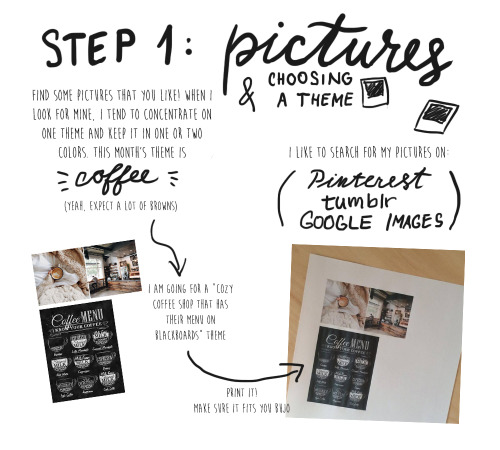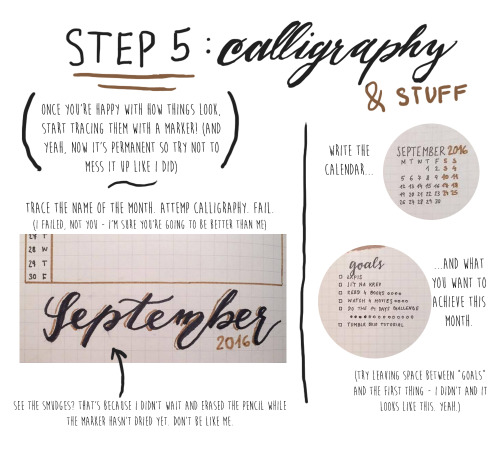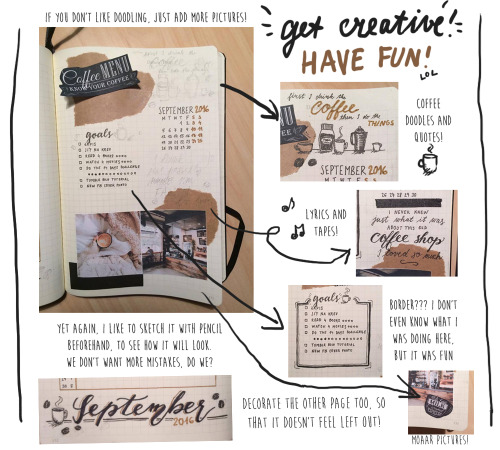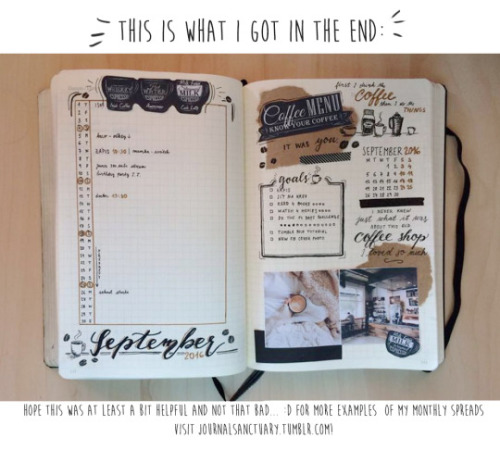Logophile101

More Posts from Logophile101 and Others

知识好像地下的泉水,掘得越深,水就越清。
Knowledge is like the spring underground — the deeper you dig, the clearer the water is.
HOW TO TEACH YOURSELF LANGUAGES SUPER EFFICIENTLY
I write this bcz I’m a huge language enthusiast and I’m frustrated about the way most methods and language classes/courses approach the process of learning. I’m not a professional but I have a lot of experience in studying foreign languages: I have taught myself Lithuanian and reached the upper intermediate level (B2) in 4-5 years without much help from others, and in Spanish reaching the same level took me only 2 years bcz I simultaneously studied it at school and already knowing French helped me a little. I want to help everyone who wants to start a new language, does not have the possibility to join a language course or just feels frustrated of the stagnation they might experience in the early phase of learning a foreign language.
So, if you want to learn a new language, I suggest following tips:
• Immerse yourself from the beginning! This is really important so that you can get yourself familiar with the intonation and pronunciation of the language. Listen to radio or tv and try to read whatever you can (ingredient lists from the food packages, newspaper articles, whatever!) it doesn’t matter if you can’t understand much yet, it will come! If you start a language with a new alphabet learn the alphabet really well first thing.
• Get an overview of the grammatical structure of the language! This is often not properly done in language courses where you learn some vocabulary and greetings but after 60 pages of the textbook you still have no idea how many verb tenses or noun cases the language has. Take a look even at the “hardest” topics, bcz they might not be that hard after all. (for example the Spanish equivalent of past perfect is much easier than the present tense)
• With that being said, learn to recognise past tenses even when you are still learning the present tense! I find it absurd that most courses expect you to master present tense _perfectly_ before even taking a look at other tenses. Most of the time, in everyday communication, past tenses are used more frequently than the present tense + in some languages mastering the past tense can also help you to form the conditional. So, learn the past tense earlier than most ppl would recommend!
• In general, study the easiest things first! If you find something particularly difficult you gain more confidence and knowledge if you first focus on what you find more interesting (however, you can’t postpone studying boring topics eternally, especially if you are preparing or hoping to prepare for an exam at some point) In Lithuanian, I taught myself a lot of grammar before learning how to tell the time… and it was ok.
• For material: usually the country’s universities have a reading list on their website which proposes what books one could use to study the language. These are often preferable to handbooks aimed for tourists and some language methods for beginners because those mostly focus on useless vocabulary you might only need when you rent a car or book a room in a hotel. The grammar is often also relatively poorly explained in those “tourist language books”, whereas books that are aimed at immigrants or university students usually focus more on the efficient language acquisition and are written by professors and specialists. If you are persistent enough and google all possible search words in both English and the target language, you can probably find whole textbooks in PDF format, which you can then save on your laptop.
• Don’t get stuck on vocabulary! Remember that grammar is the skeleton of the language and that vocabulary is the muscles hair and eventually the clothes you use to dress up and embellish your apperance. Vocabulary is useful once you know how to use it. For me, learning vocab is the hardest part of a new language, especially bcz I like starting languages that are not really similar to any other languages I know (consider Lithuanian and Greek when I previously knew Finnish, English, French and Spanish) ofc you need to learn some of it to be able to form sentences but most traditional methods focus on that too much. My suggestion is to read a lot: start by children’s books and comics and gradually get more advanced material. When you read them, make notes!! Look up the words you don’t know and don’t be afraid of using unconventional, seemingly challenging ways to learn, such as buying a bilingual poetry collection and trying to decipher what the original poem says and compare it to the translation. 100% recommend, even for the beginner level + it’s a nice way to connect to the culture but still focus on the language itself, not on the way ppl make breakfast in that country. (That’s something that irritates me a lot in most Youtube’s language videos where ppl are just discussing the traditions of the country in English when you had come there to look for the explanation of grammatical structures or just to hear the language being spoken. smh.)
• A really important thing about vocabulary is to learn all the abstract words, such as conjunctions, really soon! For example, if you find yourself in a situation where you have to use the words therefore and otherwise, it is almost impossible to try to explain those words without first translating them to another language.
• Make vocabulary learning more interesting and deep by learning about the etymology of the words you learn. It can be mind-blowing and it helps you to remember the words better.
That’s it!
I hope these tips inspire you in pursuing your interest in foreign languages and facilitate your learning process. I might add more to this if I remember I have forgotten something of great importance.
10 Mistakes When Studying
1. “I Don’t Know where to Begin.”
Make a list of all the things you have to do. Break your workload down ito manageable chunks. Prioritize. Schedule your time realistically. Begin studying early, with an hour or two per day, and slowly build as the exam approaches.
2. ‘I’ve Got So Much to Study…And so Little Time"
Preview. Survey your syllabus, reading material, and notes. Identify the most important topics emphasized, and areas still not understood. Previewing saves time, by helping you organize and focus in on the main topics.
3. “This Stuff is so Dry, I can’t Even Stay Awake Reading It”
Get actively involved with the text as you read. Ask yourself, “What is important to remember about this section?” Take notes or underline key concepts. Discuss the material with others in your class. Stay on the offensive.
4. “I Read It. I Understand It. But I Just Can’t Get it To Sink In”
Elaborate. We remember best the things that are most meaningful to us. As you are reading, try to elaborate upon new information with your own examples. Try to integrate what you’re studying with what you already know. You will be able to remember new material better if you can link it to something that’s already meaningful to you.
Chunking: Example: to remember the colors in the visible spectrum, Rog G.Biv –> reduce the information the three “chunks”.
Mnemonics: Associate new information with something familiar.
5. “I Guess I Understand It”
Test yourself. Make up questions about key sections in notes or reading. Examine the relationships between concepts and sections. Often, imply by changing section headings you can generate many effective questions.
6. “There’s Too Much to Remember”
Organize. Information is recalled better if it is represented in an organized framework that will make retrieval more systematic.
Write chapter outlines of summaries; emphasize relationships between sections.
Group information into categories or hierarchies, where possible.
Information Mapping. Draw up a matrix to organize and interrelate material.
7. “I Knew It A Minute Ago”
Review. After reading a section, try to recall the information contained in it. Try answering the questions you made up for that section. If you cannot recall enough, re-read portions you had trouble remembering. The more time you spend studying, the more you tend to recall. Even after the point where information can be perfectly recalled, further study makes the material less likely to be forgotten entirely. How you organize and integrate new information is still more important than how much time you spend studying.
For more follow How To Study Quick!!
In Chinese we don’t say “pet” we say “宠物 (chǒngwù)” which translates to “spoiled thing” and it’s just so accurate.
Submitted by @angry-potato
Turns and Steps, Explained (2/2)
Hey guys *cheerful wave* Wimbledon is over so my tennis obligation is done with and now I’ll resume my full-time figure skating follower status. I’ll kick things off with the second part of this turns and steps explanation. This post will touch on a couple of concepts we’ve discussed in the first part so you might want to check that one out before diving in: here it is.
The ISU technical handbook defines 6 types of steps: toe step, chassé, mohawk, choctaw, change of edge, and cross roll. Out of these 6, the only step that is considered difficult is the choctaw. Now if you recall from the previous post, the ISU also defines 6 types of turns (twizzle, bracket, loop, counter, rocker, three-turn). Among these 6, only the three-turn is considered basic, the other 5 are all counted as difficult. At this point I guess you’re naturally wondering why there is such an imbalance between turns and steps. Well, that is because a turn, by definition, must be done on one foot, while a step would normally involve two-footed skating, and that is something we don’t want to see too much of. In fact, the ratio of one-footed to two-footed movements is one of the most reliable indicators of a skater’s skating skills.
That said, let us check out what each of the 6 types of steps looks like. This time, to switch things up a bit, I’m going to use Seimei as illustration.
Keep reading

Free Online Language Courses

Here is a masterpost of MOOCs (massive open online courses) that are available, archived, or starting soon. Some are short, some are very interactive, some are very in-depth. I think they will help those that like to learn with a teacher or with videos. I checked each link to make sure they are functioning.
Arabic
Arabic for Global Exchange (in the drop down menu)
Arabic Without Walls
Intro to Arabic
Lebanese Arabic
Madinah Arabic
Moroccan Arabic
Read Arabic
Chinese
Beginner
Basic Chinese
Basic Chinese I
Basic Chinese II
Basic Chinese III
Basic Chinese IV
Basic Chinese V
Basic Mandarin Chinese I
Basic Mandarin Chinese II
Beginner’s Chinese
Chinese for Beginners
Chinese Characters
Chinese for Travelers
Chinese Made Easy
Easy Mandarin
First Year Chinese I
First Year Chinese II
HSK Level 1
Introduction to Chinese
Learn Oral Chinese
Mandarin Chinese I
More Chinese for Beginners
Speak Chinese like a Native Speaker
Start Talking Mandarin Chinese
UT Gateway to Chinese
Chino Básico (Taught in Spanish)
Intermediate
Chinese Stories
Intermediate Business Chinese
Intermediate Chinese
Intermediate Chinese Grammar
Dutch
Introduction to Dutch
English
Entire post here
Finnish
A Taste of Finnish
Basic Finnish
Finnish for Beginners
Finnish for Immigrants
Finnish for Medical Professionals
French
Beginner
AP French Language and Culture
Basic French Skills
Beginner’s French: Food & Drink
Diploma in French
Elementary French I
Elementary French II
Français Interactif
French in Action
French for Beginners
French Language Studies I
French Language Studies II
French Language Studies III
French:Ouverture
French Through Stories and Conversation
Improving Your French
Mastering French Grammar and Vocab
Intermediate
French: Le Quatorze Juillet
Passe Partout
Advanced
La Cité des Sciences et de Industrie
Reading French Literature
Frisian
Introduction to Frisian (Taught in English)
Introduction to Frisian (Taught in Dutch)
German
Beginner
Basic German
Basic Language Skills
Beginner’s German: Food & Drink
Conversational German I
Conversational German II
Conversational German III
Conversational German IV
Deutsch im Blick
Diploma in German
German Alphabet
German Modal Verbs
Rundblick-Beginner’s German
Study German
Advanced
German:Regionen Traditionen und Geschichte
Landschaftliche Vielfalt
Reading German Literature
Hebrew
Hebrew Alphabet Crashcourse
Know the Hebrew Alphabet
Hindi
A Door into Hindi
Business Hindi
Virtual Hindi
Icelandic
Icelandic 1-5
Indonesian
Learn Indonesian
Irish
Introduction to Irish
Italian
Beginner
Beginner’s Italian: Food & Drink
Beginner’s Italian I
Oggi e Domani
Survive Italy Without Being Fluent
Intermediate
Intermediate Italian I
Advanced
Advanced Italian I
Italian Literature
Italian Novel of the Twentieth Century
La Commedia di Dante
L'innovazione Sociale (Check language under translation)
Reading Italian Literature
Japanese
Beginner’s Conversational Japanese
Genki
Japanese JOSHU
Kazakh
A1-B2 Kazakh (Taught in Russian)
Korean
Beginner
First Step Korean
How to Study Korean
Learn to Speak Korean 1
Pathway to Spoken Korean
Intermediate
Intermediate Korean
Latin
Latin I (Taught in Italian)
Nepali
Beginner’s Conversation and Grammar
Norwegian
Learn The Norwegian Language
Norwegian on the Web
Portuguese
Brazilian Portuguese for Beginners
Curso de Português para Estrangeiros
Pluralidades em Português Brasileiro
Russian
Beginner
Basics of Russian
Easy Accelerated Learning for Russian
Russian Alphabet
Russian Essentials
Russian Phonetics and Pronunciation
Reading and Writing Russian
Travel Russian
Advanced
Reading Master and Margarita
Russian as an Instrument of Communication
Siberia: Russian for Foreigners
Spanish
Beginner
AP Spanish Language & Culture
Basic Spanish for English Speakers
Beginner’s Spanish:Food & Drink
Fastbreak Spanish
How to Self-Study Spanish
Introduction to Spanish
Restaurants and Dining Out
Spanish for Beginners
Spanish Verbs Basics
Intermediate
Español en línea
Spanish:Ciudades con Historia
Spanish:Espacios Públicos
Advanced
Corrección, Estilo y Variaciones
La España de El Quijote
Leer a Macondo
Spanish:Con Mis Propias Manos
Spanish: Perspectivas Porteñas
Reading Spanish Literature
Swedish
Intro to Swedish
Swedish Made Easy 1
Swedish Made Easy 2
Ukrainian
Read Ukrainian
Ukrainian for Everyone
Ukrainian Language for Beginners
Welsh
Beginner’s Welsh
Discovering Wales
Multiple Languages
http://ocw.mit.edu/courses/global-studies-and-languages/ : MIT’s open courseware site has assignments and course material available.
http://www.utexas.edu/cola/centers/lrc/: Ancient Languages
https://www.fun-mooc.fr/: MOOCs taught in French
http://univesptv.cmais.com.br : MOOCs taught in Portuguese
https://miriadax.net/home:MOOCs taught in Spanish & Portuguese
http://ocwus.us.es/Courses_listing: MOOCs taught in Spanish
http://www5.fgv.br/fgvonline/Cursos: MOOCs taught in Potuguese
http://interneturok.ru/: MOOCs taught in Russian
http://www.open-marhi.ru/courses/: MOOCs taught in Russian
https://www.rwaq.org/: MOOCs taught in Arabic
http://ocw.nthu.edu.tw/ocw/: MOOCs taught in Chinese
http://ocw.uab.cat/: MOOCs taught in Catalan
https://ocw.tudelft.nl/ : MOOCs taught in Dutch
http://ocw.hokudai.ac.jp/: MOOCs taught in Japanese
http://ocw.tsukuba.ac.jp/: MOOCs taught in Japanese
http://open.agh.edu.pl/ : MOOCs taught in Polish
I’ll keep an eye out for new courses and if you know of any, let me know so I can update this list.
Last updated: July 1, 2016
And things are not always okay but even from rock bottom I can still see the sky I can still see the stars.
Michelle K. (via thelovejournals)











Hey! I am really late with this, but I though that some of you might like to see how I make my monthly spreads. I did this sort of “infographics” (??? am I even allowed to call this thing infographics??) and even though it looks like this, I had so much fun making it :D. I really don’t know whether this is helpful or not, I tried. In case you’d like to see more tutorials (and hopefully better ones) in the future, let me know please? And thanks if you read it till the end, it’s so long :D
(I totally ran out of space for pictures at the end lol)
空儿 /kòngr/ - free time, spare time
有空儿 /yǒu kòngr/ - free
没空儿 /méi kòngr/ - busy
抽空儿 /chōukòngr/ - to manage to find time to do something
明天下午你有空儿吗?/ míngtiān xiàwǔ nǐ yǒu kòngr ma / - Are you free tomorrow afternoon?
两点以前没空儿,两点以后又空儿。/liǎng diǎn yǐqián méi kòng er, liǎng diǎn yǐhòu yòu kòngr./ - Before 2PM, I’m busy, after 2PM I’m free.
-
 beaucoupdelangues reblogged this · 7 years ago
beaucoupdelangues reblogged this · 7 years ago -
 ziyun10 liked this · 8 years ago
ziyun10 liked this · 8 years ago -
 goglot reblogged this · 8 years ago
goglot reblogged this · 8 years ago -
 barlason liked this · 8 years ago
barlason liked this · 8 years ago -
 goglot reblogged this · 8 years ago
goglot reblogged this · 8 years ago -
 zhangmeiyu liked this · 8 years ago
zhangmeiyu liked this · 8 years ago -
 ctxxviii reblogged this · 8 years ago
ctxxviii reblogged this · 8 years ago -
 jiangxuezhe reblogged this · 8 years ago
jiangxuezhe reblogged this · 8 years ago -
 logophile101 reblogged this · 8 years ago
logophile101 reblogged this · 8 years ago -
 logophile101 liked this · 8 years ago
logophile101 liked this · 8 years ago -
 camep reblogged this · 8 years ago
camep reblogged this · 8 years ago -
 camep liked this · 8 years ago
camep liked this · 8 years ago -
 miraula liked this · 8 years ago
miraula liked this · 8 years ago -
 unparalleledbear liked this · 8 years ago
unparalleledbear liked this · 8 years ago -
 quanhhhh-blog liked this · 8 years ago
quanhhhh-blog liked this · 8 years ago -
 thepurloiningpachyderm-blog reblogged this · 8 years ago
thepurloiningpachyderm-blog reblogged this · 8 years ago -
 sqw liked this · 8 years ago
sqw liked this · 8 years ago -
 junn-do reblogged this · 8 years ago
junn-do reblogged this · 8 years ago -
 junn-do liked this · 8 years ago
junn-do liked this · 8 years ago -
 rawanm1212-blog liked this · 8 years ago
rawanm1212-blog liked this · 8 years ago -
 maxwellma liked this · 8 years ago
maxwellma liked this · 8 years ago -
 zararen liked this · 8 years ago
zararen liked this · 8 years ago -
 ohsnapitsyanny liked this · 8 years ago
ohsnapitsyanny liked this · 8 years ago -
 ichlernechinese liked this · 8 years ago
ichlernechinese liked this · 8 years ago -
 mtnkat3 liked this · 8 years ago
mtnkat3 liked this · 8 years ago -
 bluealbumbyweezer liked this · 8 years ago
bluealbumbyweezer liked this · 8 years ago -
 luxia-the-unicornv reblogged this · 8 years ago
luxia-the-unicornv reblogged this · 8 years ago -
 ilovehellokittysbighead liked this · 8 years ago
ilovehellokittysbighead liked this · 8 years ago -
 hoodinyi reblogged this · 8 years ago
hoodinyi reblogged this · 8 years ago -
 hoodinyi liked this · 8 years ago
hoodinyi liked this · 8 years ago -
 vivianwanggg-blog reblogged this · 8 years ago
vivianwanggg-blog reblogged this · 8 years ago -
 maranzalla reblogged this · 8 years ago
maranzalla reblogged this · 8 years ago -
 weirdwyvern liked this · 8 years ago
weirdwyvern liked this · 8 years ago -
 allaboutchinese reblogged this · 8 years ago
allaboutchinese reblogged this · 8 years ago -
 keng111 liked this · 9 years ago
keng111 liked this · 9 years ago -
 othersidemoon liked this · 10 years ago
othersidemoon liked this · 10 years ago -
 xxuniquestarxx liked this · 10 years ago
xxuniquestarxx liked this · 10 years ago -
 coeursurlamur liked this · 10 years ago
coeursurlamur liked this · 10 years ago